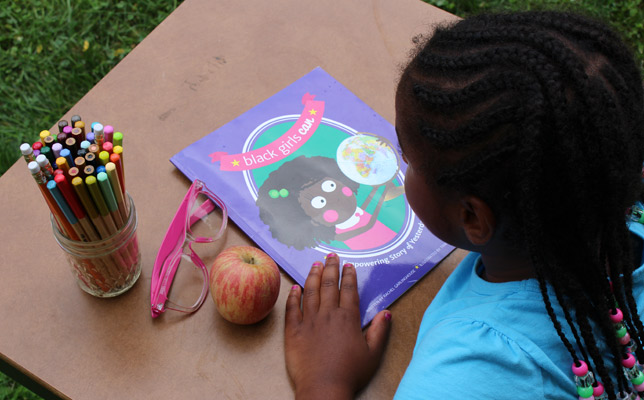This guest post is by Rachel Garlinghouse, an adoptive mother and author.
I was one of the moms who swore I would NEVER homeschool.
I, like many, considered homeschooling to be a process that isolated kids, making them increasingly socially awkward with strong aversions to mainstream society.
I also didn’t want to engage in epic battles with my kids over worksheets, handwriting techniques, and math (the subject I most despise).
Then I had an “aha moment” when my oldest daughter came home from preschool one October.
She was thrilled to report that her teacher and taught the class about Martin Luther King, Jr. I found it odd considering Dr. King is usually most celebrated in either January (his birthday) or February (Black History Month).
The following month at parent-teacher conferences, my suspicions were proven correct. The teacher indicated that she had taught the kids about Martin Luther (the theologian who started the Protestant Reformation).
As a mom-by-adoption to three kids, I want my kids to be proud of their racial history and their racial culture. I want them to be confident and proud.
And as each school year passed, I realized they weren’t going to get a great education on black history through their schools: private or public. It was up to me.
This is how I fell into homeschooling: with the conviction that I was responsible, first and foremost, for empowering my kids to know their history.
Over a year, I spent every afternoon with my children (one in part-time public school kindergarten and one in part-time private preschool) reading them books, doing activities, listening to music, and much more.
Most of the resources I used were by black authors, illustrators, artists, and musicians.
A dear friend of mine encouraged me to put my curriculum into a book to help other parents.
As I wrote the beginning chapters, I realized that homeschooling children who were adopted is not just about teaching them their racial history and emphasizing their racial culture (including current events, role models, and more), but it’s also about a few other key things that are related to adoption.
Here are five reasons why parents-by-adoption should consider homeschooling as an option for their children:
1. You can emphasize your child’s racial history and current events.
Whether or not your child is transracially adopted, you can utilize your homeschooling time to give your children the education they will not receive in a public school environment.
For example, in public and some private schools, the teaching of black history is relegated to a single month (February), but if you homeschool, black history can be part of your everyday curriculum.
You are also free to discuss current events (within your child’s understanding and maturity), something that is often discouraged in public and private school, especially in the younger grades.
2. You can work at the child’s pace.
Many of our kids have language barriers, learning disabilities, delays, and unique needs that schools aren’t equipped to meet or aren’t willing to assist with.
In a classroom setting, all children are expected to move along at a particular pace, which means some students are always strung along rather than encouraged to fully learn and understand the material before moving to a higher and more difficult level of learning.
These children can easily become discouraged and frustrated (even more likely to be disciplined for acting out because of their frustrations), leaving them enjoying school less and less as the months and years go by.
3. You can “stop and smell the roses.”
You don’t have to rush through material at break-neck speed.
You can carve out breaks (whenever it works in your family’s schedule) and go on field trips (concerts, museums, nature walks).
You can make your vacations part of your homeschooling experience: visiting monuments, touring historic places, and learning about other parts of the country.
4. You can spend time with other homeschooling, adoptive families during the day.
You don’t have to relegate your plans to the weekends, evenings, or holidays.
Children love meeting other families who are like theirs; doing so instills confidence in kids.
There are many homeschooling co-ops across the country, some of which include a diverse group of students and parents.
5. You can strengthen your attachment to your children.
It’s well-known in the adoption community that many parents and kids have a hard time bonding and attaching.
Learning and playing together through homeschooling allows the time and space needed for increased bonding and attaching to occur.
You can take breaks as needed for a child who becomes frustrated or dysregulated. You can give your children one-on-one attention: lots of eye contact, gentle touch, praise, and affirmation.
Those are my five reasons why adoptive parents should consider homeschooling for their children. What would you add to the list?
Rachel Garlinghouse is the author of four books, including the newly released Homeschooling Your Young Black Child: A Simple Getting-Started Guide and Workbook. She is a mom of three by domestic, infant, transracial adoption. Rachel is former college writing teacher turned part-time homeschooling mom and writer. Learn more at www.whitesugarbrownsugar.com
Do you have an open adoption story? Share it with our community.
Help us remove the stigma surrounding open adoption. Like us on Facebook.

